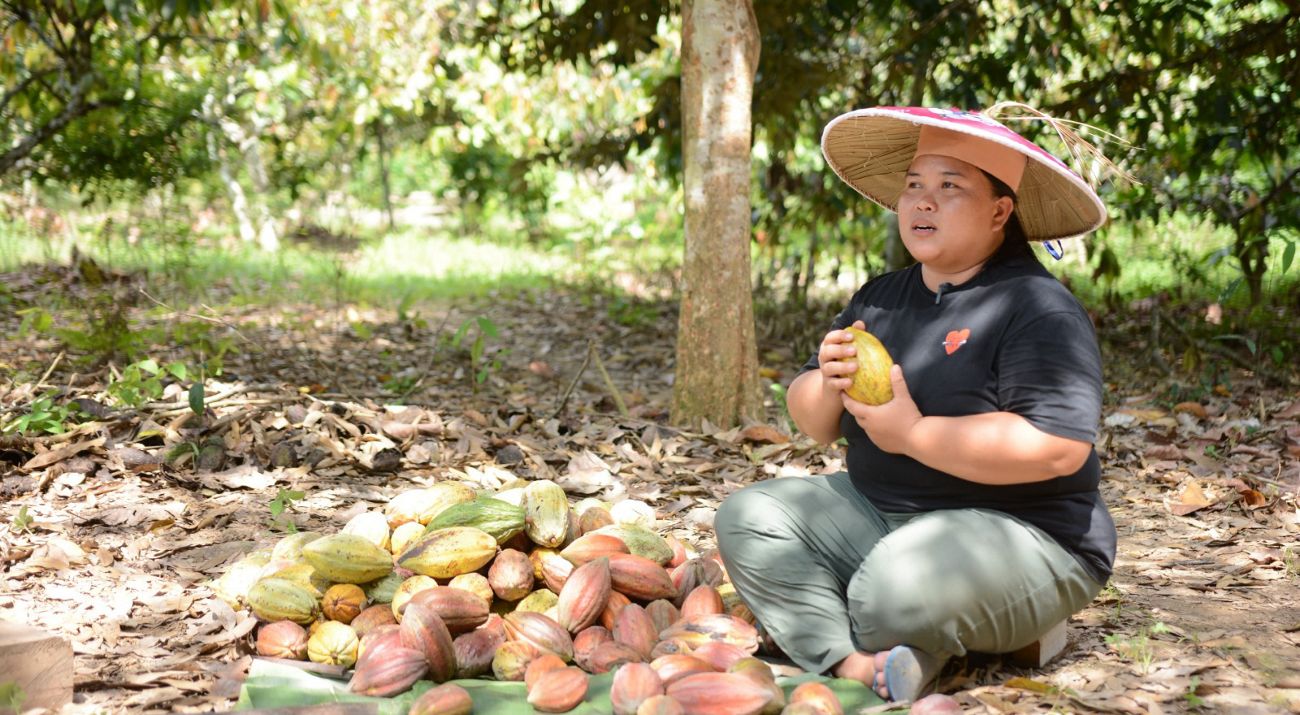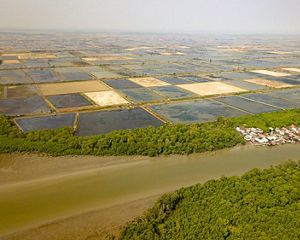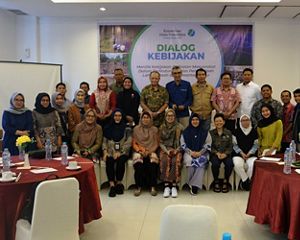Chocolate artisans from Jakarta, Pipiltin Cocoa, are excited to announce their partnership with Merasa Village, Berau Regency. This unique collaboration not only guarantees a market for the farmers' produce but also ensures fair and ethical prices, providing a stable income source. "We are committed to purchasing as much fermented cocoa as they produce," said Irvan Helmi, Co-Founder of Pipiltin Cocoa, during his visit to Merasa Village in April 2024.
Read: Empowered Women from Salafen Village
Over two days (April 20-22), Pipiltin Cocoa engaged in discussions with cocoa farmers in Merasa Village and observed the cocoa fermentation process firsthand. Irvan assured the farmers that their company would offer fair and ethical prices. The farmers' commitment to sustainable cocoa farming is commendable and essential to sustaining the cocoa farming and processing practices in Merasa Village. About 80% of cocoa farmers in Indonesia produce raw cocoa, with only 20% engaging in fermentation. Fermented cocoa commands a higher price due to its different post-harvest process, which requires more time and treatment.
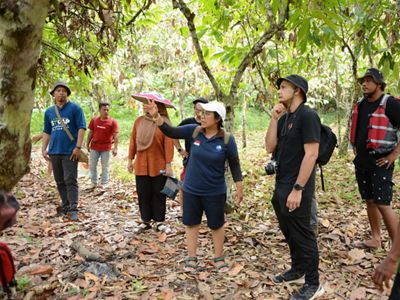
Yayasan Konservasi Alam Nusantara (YKAN), in partnership with the Kalimajari Foundation, has been a driving force in supporting cocoa farmers in Merasa Village for the past four years. Through the Community Forest Conservation strategy, they have been promoting the development of sustainable commodities as alternative income sources to reduce pressure on deforestation around the village. In Merasa Village, YKAN and the Kalimajari Foundation have been assisting farmer groups in enhancing their capacity in cocoa plant management, with a specific focus on fermented cocoa beans.
Pipiltin Cocoa, in their commitment to sustainability, had previously highlighted Merasa cocoa as their signature chocolate in 2022 through the Single Origin (SO) Merasa Village 74%, characterized by a bitter taste profile. This cocoa represents the first beans from Kalimantan Island processed by Pipiltin Cocoa. During this visit, Pipiltin aims to build a partnership that not only benefits the farmers but also ensures the sustainability of the cocoa industry and the conservation of the environment.
With the global cocoa market currently facing a supply shortage, there's a promising opportunity for cocoa farmers to reap significant financial benefits. As the two largest supplying countries, Ghana and Ivory Coast, experience productivity declines, the demand for cocoa is expected to rise. This potential increase in income could be a game-changer for cocoa farmers, offering them a brighter and more prosperous future. "This could be a game-changer for cocoa farmers," said Irfan. He further emphasized that the potential price increase could be reinvested back into the plantations for rejuvenation, planting, and ecosystem management, ensuring sustained productivity and prosperity for the farmers.
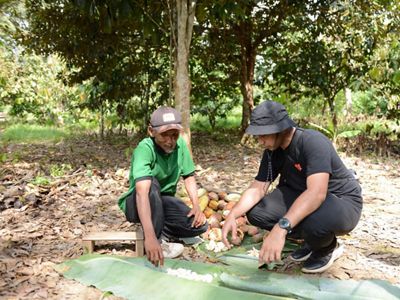
Recognizing the crucial role of active community involvement in natural resource conservation, it is hoped that private sector support for community initiatives can inspire cocoa farmers in the region to participate in forest conservation efforts. This involvement is not just beneficial for the environment but also for the community's livelihoods. In the future, initiatives like these can continue to be developed and implemented in other areas, empowering communities to take charge of their environment and livelihoods.


